Key Dates
Next Grant Round:
Applications for funding will open early 2025.
> Information about our Grants Program
Independent Grants Panel:
Results of the recent EOI will be notified Dec 2024.
> Information about our Panel
We can help: grants@accan.org.au
or phone 02 9288 4000
Subscribe to Grants Program mailings
Welcome
ACCAN works towards achieving communications services that are trusted, inclusive, and available for all.
With this aim, the ACCAN Grants Program funds projects to enable research on telecommunications issues, represent telecommunications consumers, or create educational tools which empower consumers to understand telecommunications products and services and make decisions in their own interests.
On the following pages you will find all the information you need to decide if your project idea is eligible for an ACCAN Grant, and how to apply.
To be eligible, projects must address systemic telecommunications consumer issues. Have a browse through the following ACCAN Grants Projects to get a feel for the type of work that is funded under the Program.
Charles Sturt University
Telecommunications accounts cannot be held jointly by multiple parties. "Family Plans" are commonly promoted as an economic option for multiple users. These plans have multiple devices (with multiple users) contracted to one person as the 'Customer'. This project investigates the surveillance risks (including call, message and location monitoring) that Family Plans present during ongoing relationships, in particular those at risk of domestic violence.
Royal Melbourne Institute of Technology (RMIT)
The ability of small businesses (those with less than twenty employees) to adopt advanced digital services such as e-commerce solutions and cybersecurity services is vital for these businesses and for the economy. Recent surveys indicate that many are struggling to adapt to sudden changes due to Covid-19. This project aims to investigate how small retail businesses can enhance their growth and efficiency through the better use of advanced digital services from telecommunications providers.
Read more: Enhancing the digital adaptability of Australian small retail businesses
University of Technology Sydney
The project will map out policy options for developing a complaint-handling framework for digital platforms, addressing a critical need for the satisfactory resolution of complaints from consumers. The features of effective and accountable internal dispute resolution schemes and the options for an external complaint-handling scheme will be assessed.
Read more: Digital platform complaint handling: Options for an external dispute resolution scheme
Royal Melbourne Institute of Technology (RMIT)
This project is about ‘e-changers’, a significant and growing segment of the population who have chosen to move from the city to regional and coastal areas while maintaining their city jobs.
Through online ethnography with e-change households and interviews with other stakeholders, RMIT researchers sought to understand and document the telecommunications experiences and needs of this distinctive and growing segment of the Australian population.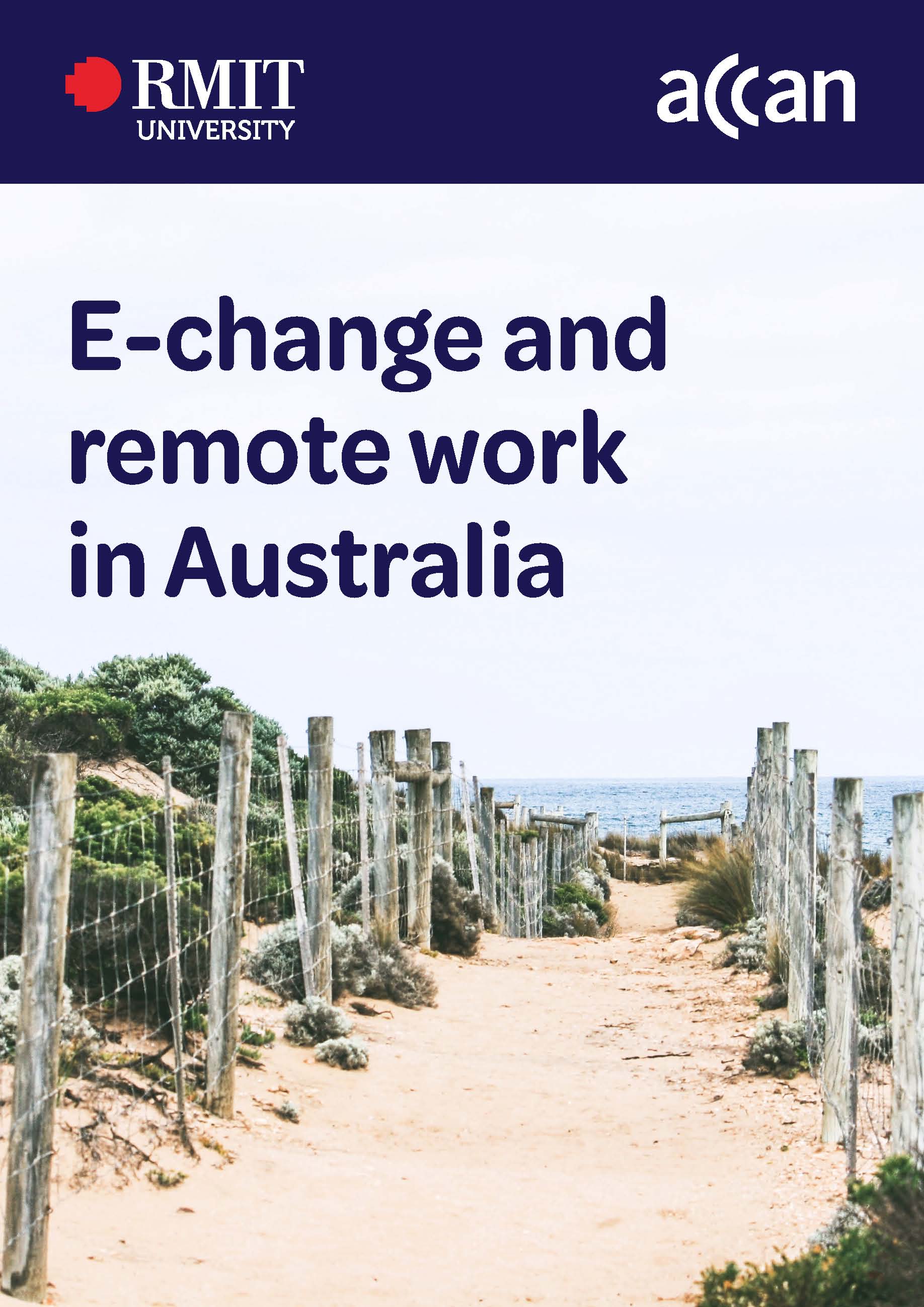
University of Technology Sydney (UTS) 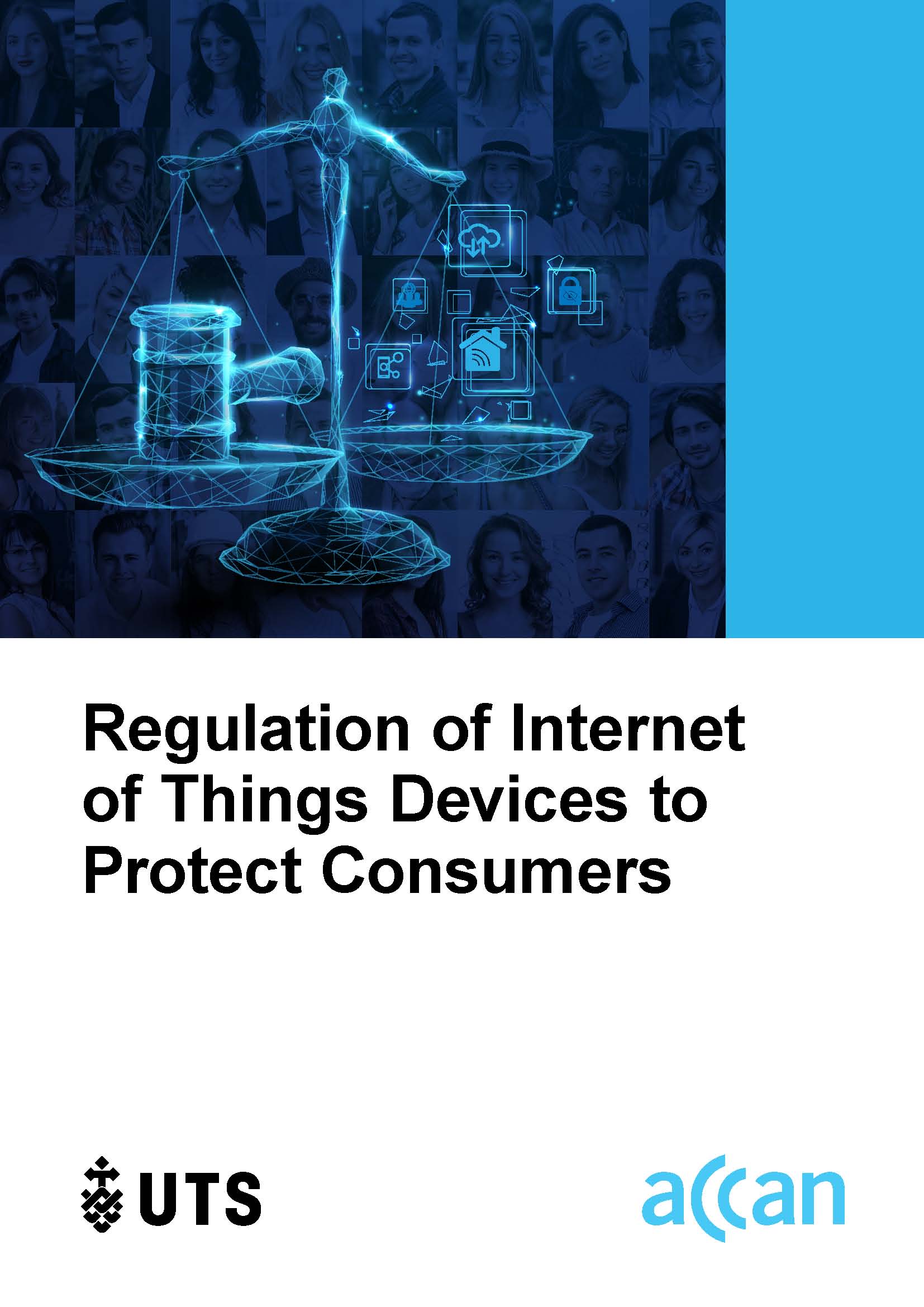
The Internet of Things (IoT) has the potential to transform the way we live and work. But the growth of consumer IoT devices for the home, such as connected appliances and smart assistants, poses serious threats to consumers’ security and privacy.
This research identifies and analyses options for best practice regulation of IoT security and privacy. The report includes recommendations for reforming cyber security, consumer protection and data privacy law and regulation.
Read more: Regulation of Internet of Things Devices to Protect Consumers

Curtin University
Approaches to the accessibility of subscription versus free to access Australian video on demand platforms have been evaluated with research gathering new insights from consumers with disabilities.
Read more: Access On Demand: An Analysis of the Accessibility Options on Streaming Television
Charles Sturt University
This project and its report outlines regional and rural consumer understandings of smart technologies and their applications in North West New South Wales, Australia. It identifies consumer engagement with digital infrastructure, the changing nature of development and planning in a digital context and the impact of smart services on social relations.
 Royal Melbourne Institute of Technology (RMIT)
Royal Melbourne Institute of Technology (RMIT)
This project focuses on giving a voice to how seniors perceive risk associated with ICT usage and ownership.
Wamboin Communications Action Group Inc.
This project assisted regional and rural areas to effectively engage with their local communities and build a business case for the implementation of network capabilities to support their current and future needs. The project delivered a set of resources that can be applied across regional, rural and remote areas to help communities identify local requirements to achieve better Internet connectivity to support their economic and social growth.
Read more: Achieve Better Broadband for Regional Communities
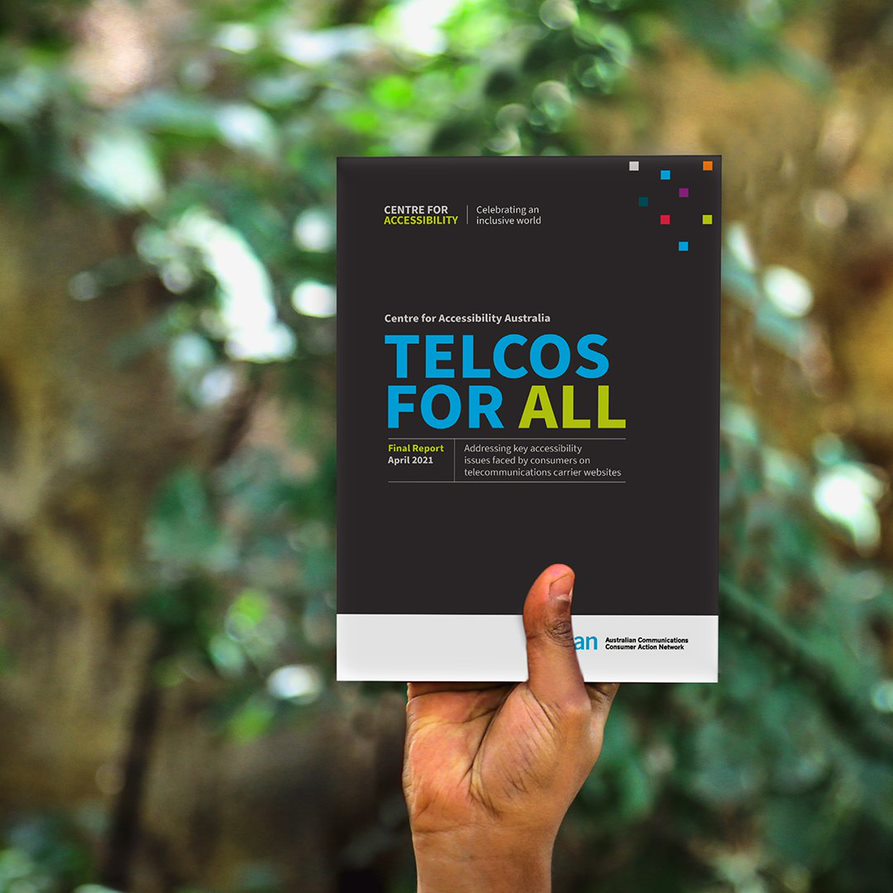 Centre for Accessibility
Centre for Accessibility
In 2021, the Centre For Accessibility (CFA) Australia undertook research to improve the accessibility of websites and apps provided by the telecommunications sector.
 Children and Media Australia (Formerly ACCM)
Children and Media Australia (Formerly ACCM)
Grant Round: 2020
Amount: $48,000
Read more: Apps Can Trap - Tips for Protecting Children’s Privacy
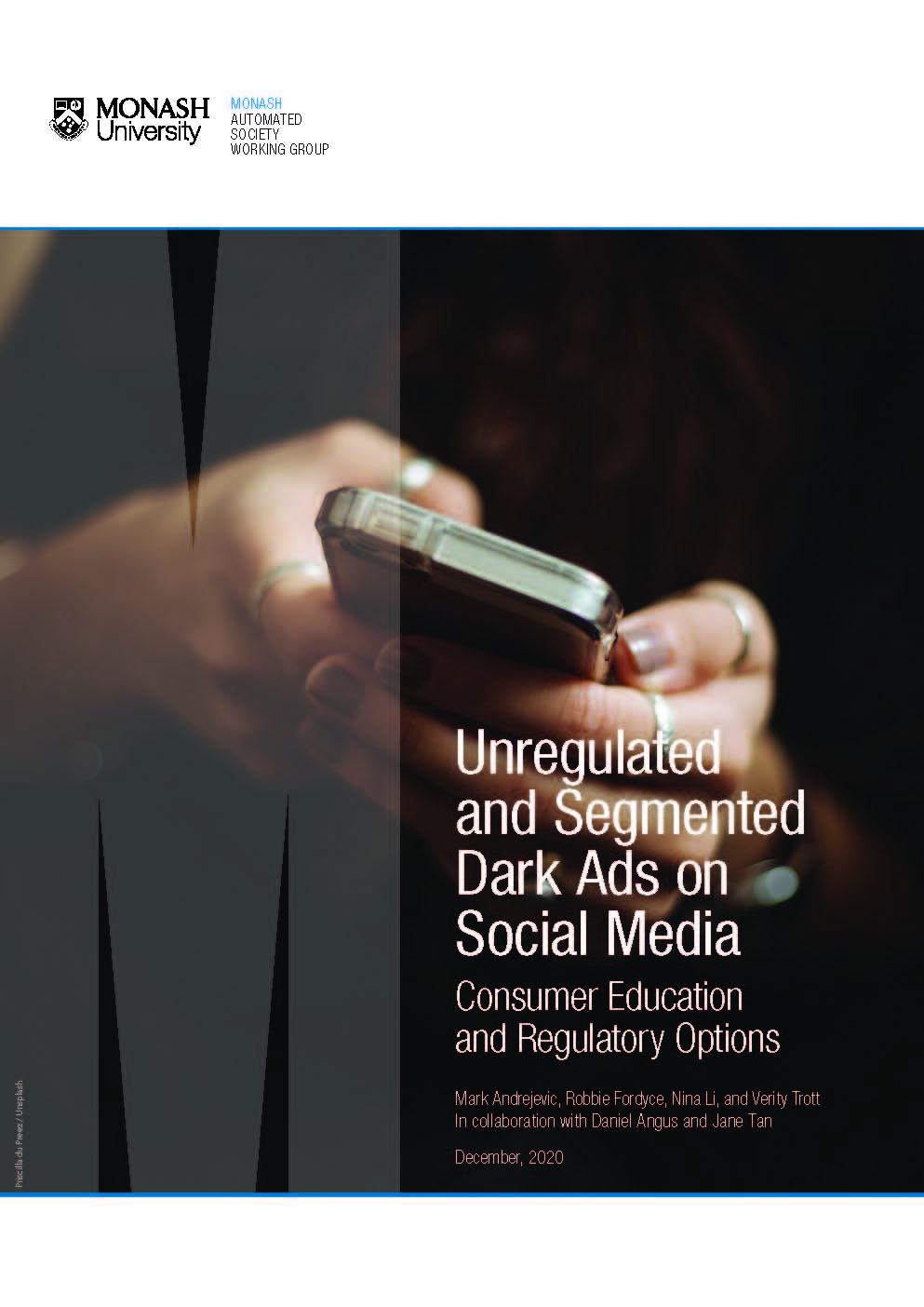
Monash University, Automated Society Working Group
Grant round: 2019
Amount: $49,579
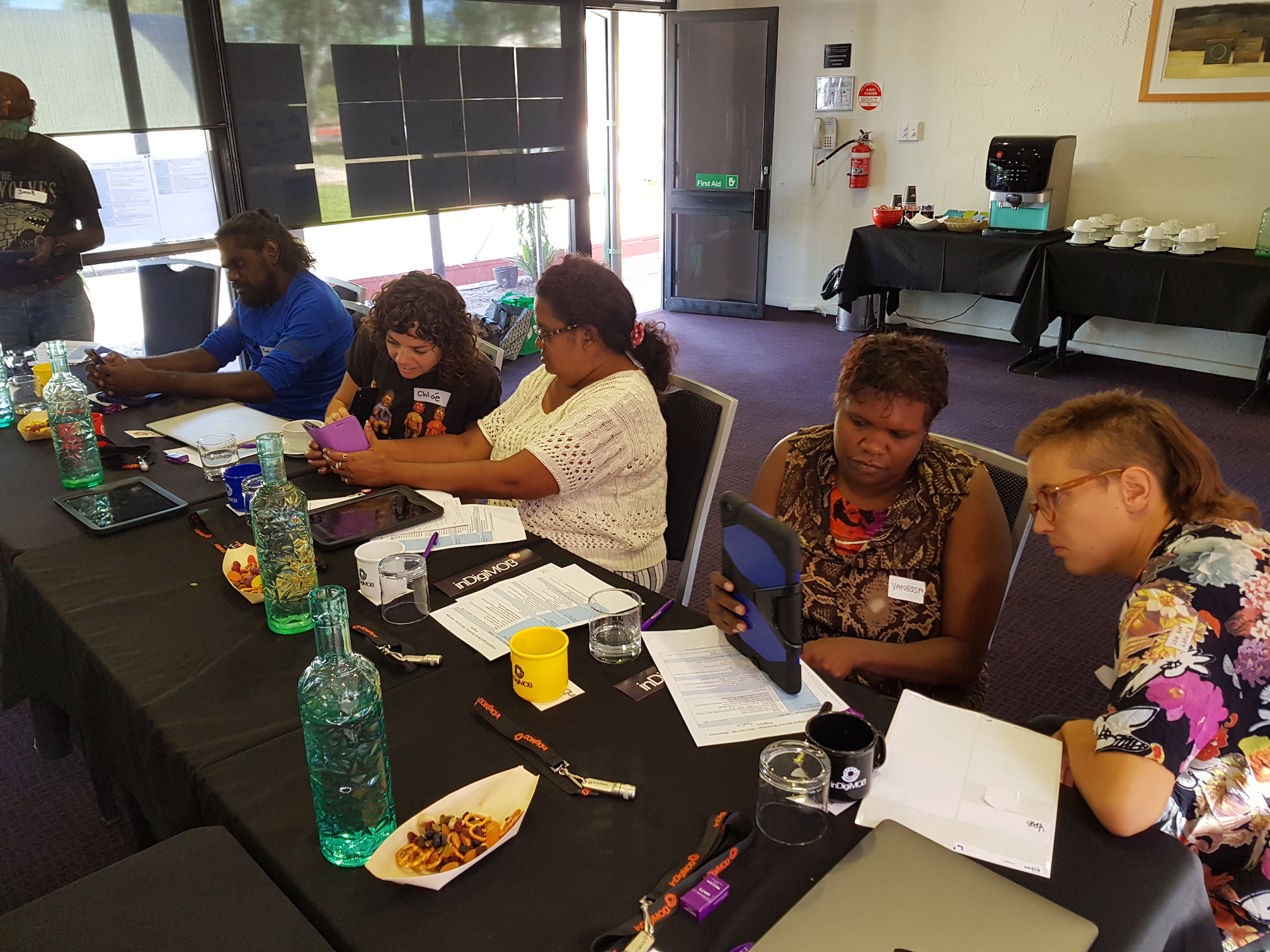 First Nations Media Australia
First Nations Media Australia
Grant round: 2019
Amount: $49,670
Read more: Indigenous Community Perspectives and Experiences of Digital Inclusion
 SACOSS (South Australian Council of Social Service)
SACOSS (South Australian Council of Social Service)
Grant Round: 2019
Amount: $99,112
Read more: Connectivity Costs II: Telecommunications Affordability and Waged Poor Households
WEstjustice
Grant Round: 2019
Amount awarded: $50,000
Read more: Newly-Arrived Consumers Telecommunications Advocacy Project
 UTS Faculty of Law, UNE School of Law
UTS Faculty of Law, UNE School of Law
Grant round: 2017-18
Amount: $50,603
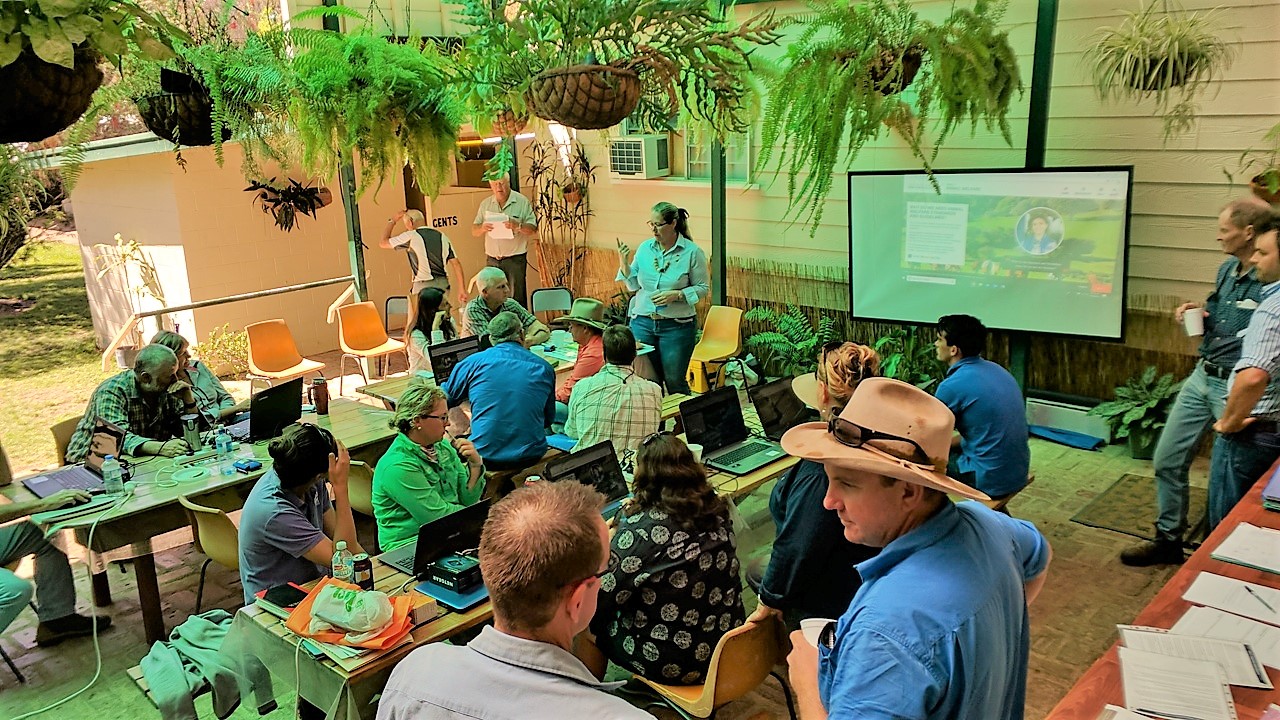
James Cook University, Cairns Institute
Grant round: 2017-18
Amount: $36,000
Read more: Connectivity and digital inclusion in Far North Queensland agricultural communities

Deakin University, Alfred Deakin Institute for Citizenship and Globalisation
Grant round: 2017-18
Amount: $60,728
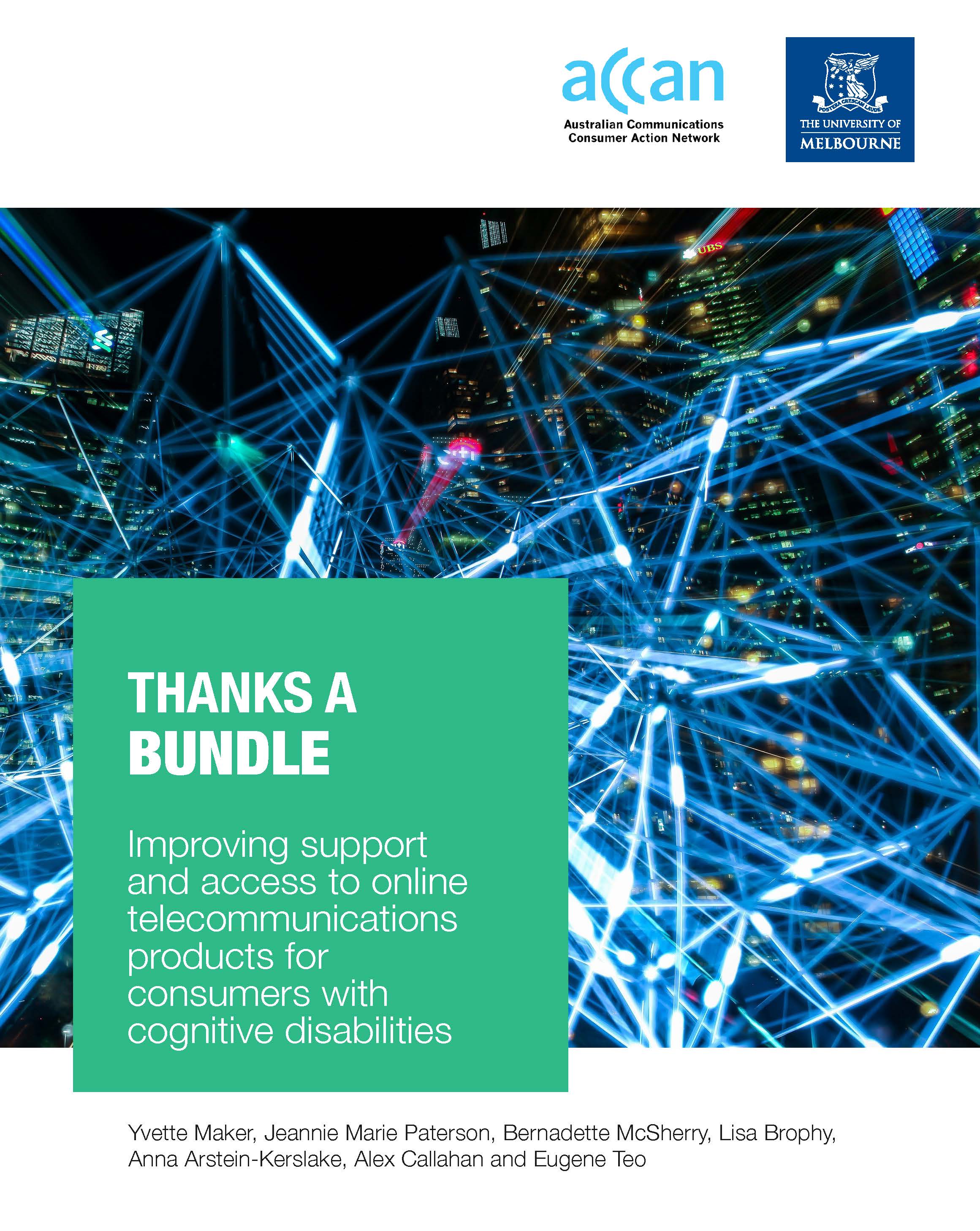
University of Melbourne, Melbourne Social Equity Institute
Grant round: 2017-18
Amount: $69,428
Read more: Thanks a Bundle: Making telecommunications services more accessible for people with...

Grant Round: 2019
Amount: $50,000
Read more: Telecommunications Debt in Rural and Remote Indigenous Central Australian Communities
 UTS School of Communication
UTS School of Communication
Grant round: 2017-18
Amount: $55,302
 QUT School of Justice, Faculty of Law
QUT School of Justice, Faculty of Law
Grant round: 2017-18
Amount: $53,247
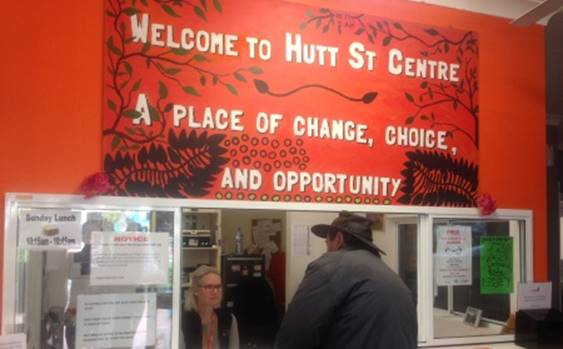
Hutt St Centre
Grant round: 2017-18
Amount: $5,000

 Deakin University
Deakin University